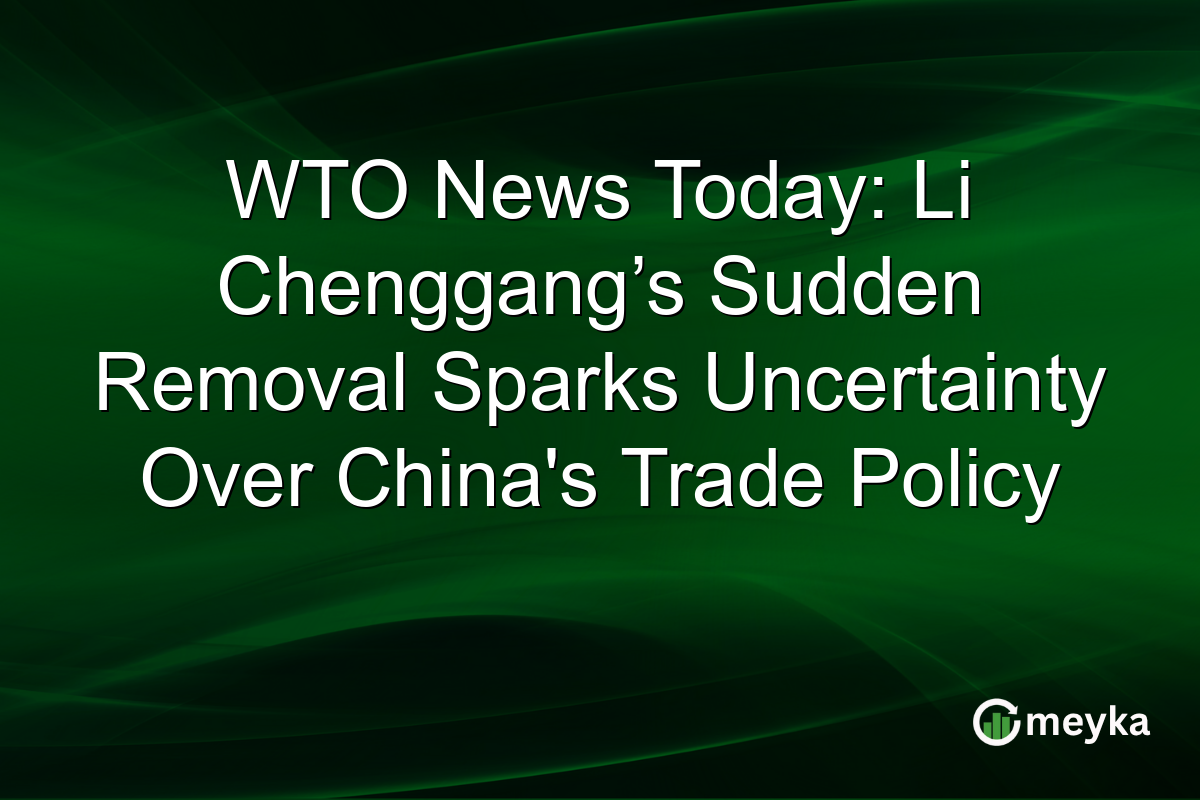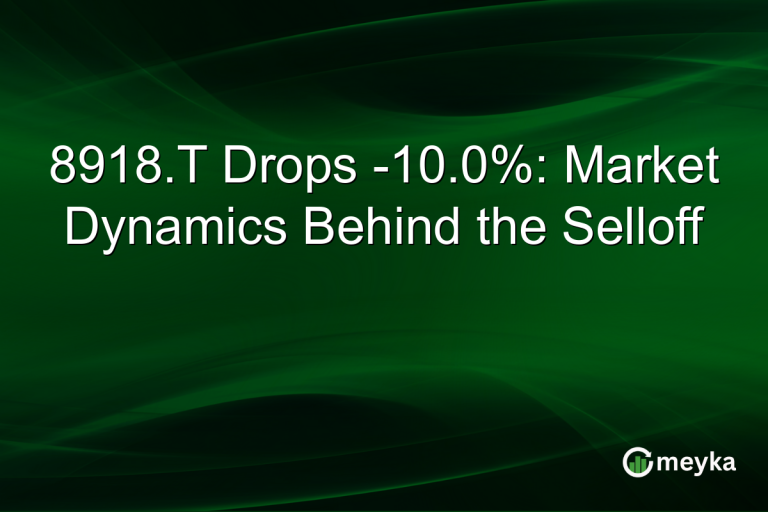WTO News Today: Li Chenggang’s Sudden Removal Sparks Uncertainty Over China’s Trade Policy
Li Chenggang, China’s former ambassador to the World Trade Organization (WTO), has been suddenly removed from his post. This unexpected decision has stirred significant concern among investors and global trade stakeholders. occurring at a time when US-China trade tensions are heightened, the move raises questions about potential shifts in China’s trade policy and its strategy in ongoing global trade negotiations.
Background of the Sudden Removal
Li Chenggang’s removal has activated discussions about possible strategic shifts within China’s trade policy at the WTO. Known for his role in representing China since 2019, his sudden departure is unusual amid ongoing trade disagreements between the US and China. Analysts are speculating on China’s motives, considering the trade talks’ complicated nature and global economic stakes.
Read more from the latest news: CNBC.
Impacts on Global Trade Negotiations
The change in WTO representation for China could potentially alter the dynamics of international trade negotiations. China has been a pivotal member, particularly in disputes involving competitive trade practices. Li Chenggang’s removal might signal a shift in how China plans to engage with global trade rules. As negotiations continue, stakeholders are keenly observing how this leadership change might influence upcoming trade agreements and enforcement measures.
Implications for China’s Trade Policy
This leadership change may hint at broader shifts in China’s trade policy amidst ongoing negotiations with the US. Li Chenggang played a critical role in advocating for China within the WTO’s complex framework. His replacement could suggest a reorientation in China’s approach, possibly aligning more closely with domestic policy goals. Observers are watching for any such changes impacting international collaboration and policy formulation, especially given the economic implications involved.
For more information: Reuters.
Responses from Trade Partners and Investors
Trade partners express both concern and curiosity about the implications of this sudden change. Investors, in particular, are cautious, as uncertainty around China’s trade policy could affect market stability. Given China’s significant role in the global market, any indication of altered trade directions could lead to shifts in market strategies, affecting global economic forecasts. Investors are urged to closely monitor China’s next steps, looking for clarity and potential policy adjustments.
Further analysis: Bloomberg.
Final Thoughts
Li Chenggang’s sudden removal from his WTO position not only raises questions about China’s next steps in global trade but also highlights potential strategic shifts amidst a turbulent economic landscape. As trade partners and investors decode China’s intentions, the broader implications for international trade agreements remain a focal point. While uncertainty prevails, this development could drive significant policy reconsiderations both within China and in its dealings with key partners. Stakeholders must stay informed as new strategies unfold, affecting international markets and trade policies.
FAQs
Li Chenggang’s removal appears to be part of a broader strategic shift in China’s approach to international trade. Specific reasons for his sudden departure have not been disclosed, but it coincides with complex trade tensions.
China’s shift in WTO representation can alter the dynamics of global trade negotiations and dispute resolutions. Stakeholders may see changes in trade agreement approaches and enforcement practices influenced by new Chinese strategies.
Investor sentiment is cautious due to market uncertainties associated with potential shifts in China’s trade policy. Analysts are closely monitoring China’s next moves, which could have significant implications for market stability and economic forecasts.
Yes, a change in leadership might indicate adjustments in trade policy to align more closely with domestic goals or emerging international priorities. This could affect China’s negotiating stance in global trade talks.
Stakeholders should watch for official announcements from China that clarify its trade policy direction. Emphasis should be on any policy adjustments that could influence international trade agreements and economic partnerships.
Disclaimer:
This is for information only, not financial advice. Always do your research.






